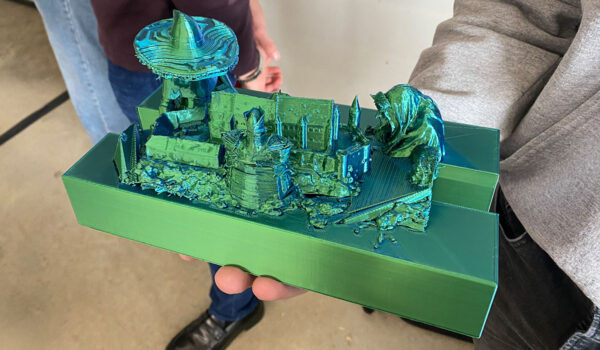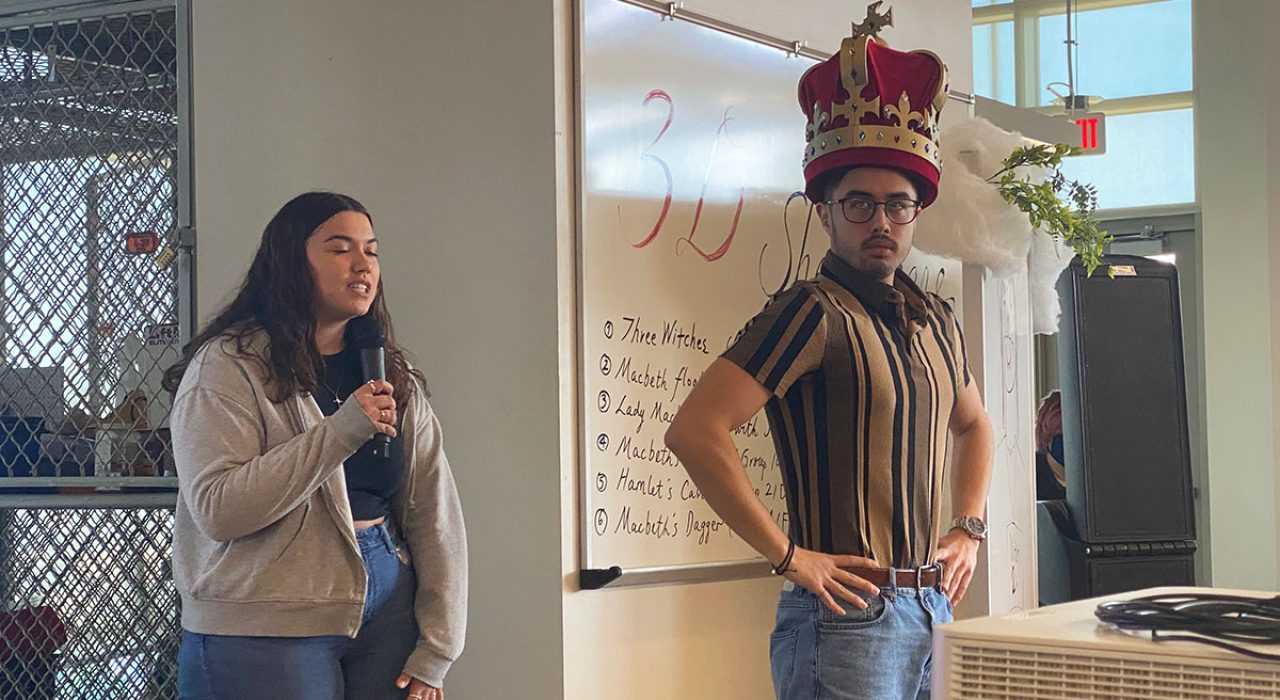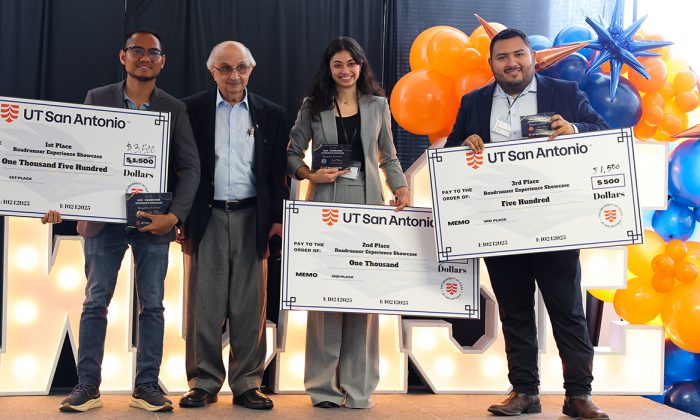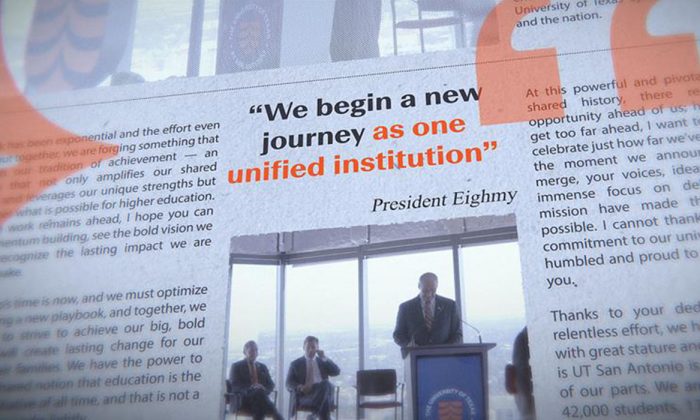Students in the Margie and Bill Klesse College of Engineering and Integrated Design are using the UTSA Makerspace to bring William Shakespeare into the 21st century. They are creating props, such as bottles, crowns, daggers and witches with 3D printers for English and literature students in the College of Liberal and Fine Arts who are studying Shakespeare’s plays.
The project is a collaboration between assistant professors Xiaoyi Zhang in English and Gongchen Sun in Biomedical and Chemical Engineering, who wanted to a find common ground for their seemingly exclusive disciplines. The result has students in Zhang’s class, “Shakespeare: The Later Plays,” working with Sun’s students in “Introduction to Materials Science and Engineering.”
The course is an example of UTSA’s commitment to transdisciplinary knowledge. In 2019, UTSA launched the Transdisciplinary Teams Program to respond to the growing complexity of research and faculty needs. The collaborative nature of the course has Zhang and Sun looking for opportunities to work with other faculty members moving forward.
“This is like a trial as a product manager,” Zhang said. “The course requires my students — the designers — to work with Gongchen’s students who are engineers. They must compromise and eventually meet in the middle.”
“My students learned the communication skills necessary to deal with clients in the real world while Xiaoyi’s students learned that there are limits to technology.”

Zhang and Sun experimented with the concept in the fall of 2022 with Zhang’s class on Dante’s “Inferno.” She said her students pushed their engineering peers to be creative by making some challenging requests. In one instance, the group wanted to recreate the Wood of Suicides from the seventh circle of hell in the “Inferno.” People who die by suicide in the story are turned into trees and tormented by harpies, who rip off their limbs which grow back so the process can repeat for eternity. The engineering students were able to scale the request down from an entire forest to one tree.
“Some of the groups were very picky and the engineers asked them to tone things down,” Sun said. “My students learned the communication skills necessary to deal with clients in the real world while Xiaoyi’s students learned that there are limits to technology.”
For this year’s course on Shakespeare, Zhang had her students work together in teams to do something creative with one of Shakespeare’s later works — such as recording a podcast, producing a short film, or writing their own playlet. Each team had to incorporate some physical item from the Shakespeare play that would be created by Sun’s students.
“We think regardless of which field we are in, there are some shared core values,” Sun said. “For example, creativity, the ability to dissect principles behind abstract or natural phenomenon and communication. We wanted to create a venue for students to experience that.”
Zhang and Sun plan to teach the classes again in Fall 2024. Their hope is that more students will take their courses to hone their perspectives around collaboration, which is a critical skill for success in the workforce. The faculty members also plan to recruit other professors and instructors to join their partnership.
“We would like to find other departments and faculty members who are interested in creating a collaborative project like this,” Sun said. “We can include different fields and topics, and design more unique and creative projects to benefit students in different disciplines.”



